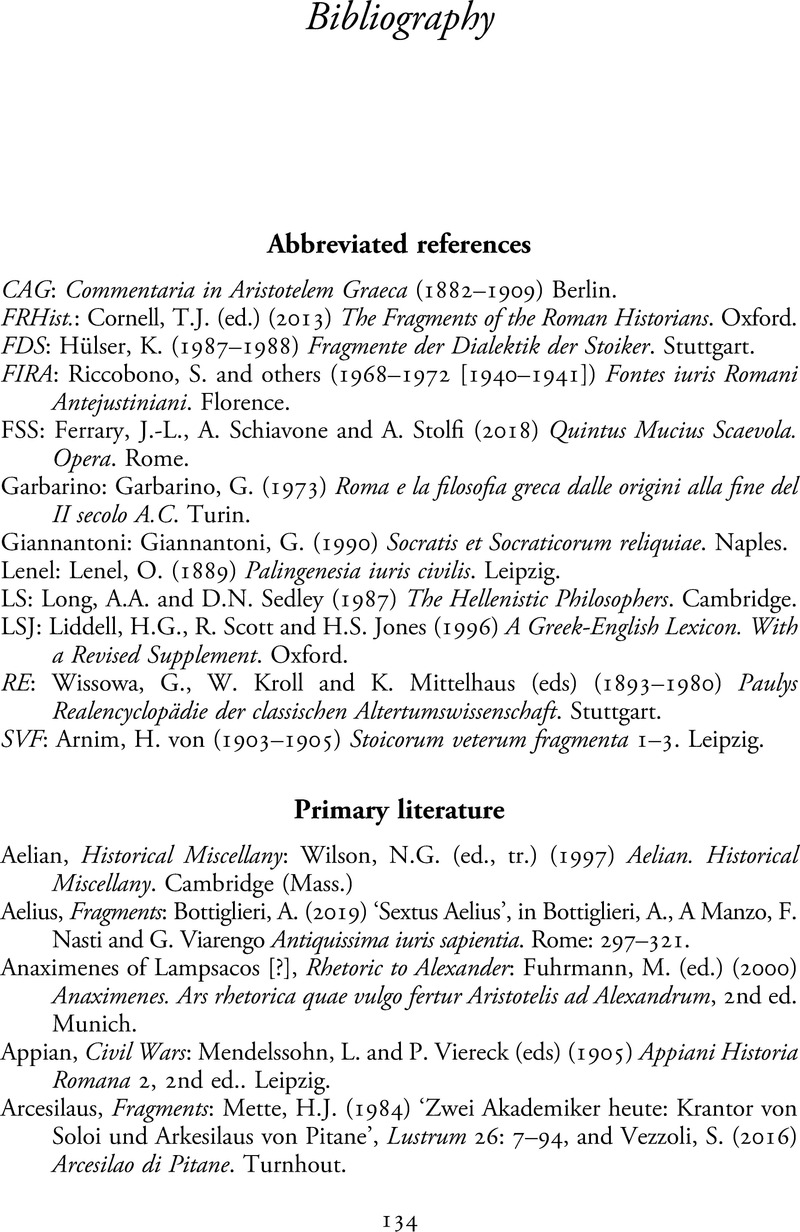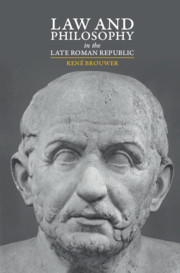Book contents
- Frontmatter
- Table of contents
- Preface
- Chapter 1 Introduction
- Chapter 2 Law and philosophy around 150 bce
- Chapter 3 ‘System’ in law
- Chapter 4 ‘Rule’ in law
- Chapter 5 ‘Person’ in law
- Chapter 6 Casuistry in philosophy
- Chapter 7 Property in philosophy
- Chapter 8 Law and philosophy after 50 bce
- Bibliography
- Index locorum
- General index
- References
Bibliography
Published online by Cambridge University Press: 29 April 2021
- Frontmatter
- Table of contents
- Preface
- Chapter 1 Introduction
- Chapter 2 Law and philosophy around 150 bce
- Chapter 3 ‘System’ in law
- Chapter 4 ‘Rule’ in law
- Chapter 5 ‘Person’ in law
- Chapter 6 Casuistry in philosophy
- Chapter 7 Property in philosophy
- Chapter 8 Law and philosophy after 50 bce
- Bibliography
- Index locorum
- General index
- References
Summary

- Type
- Chapter
- Information
- Law and Philosophy in the Late Roman Republic , pp. 134 - 163Publisher: Cambridge University PressPrint publication year: 2021

